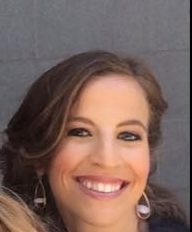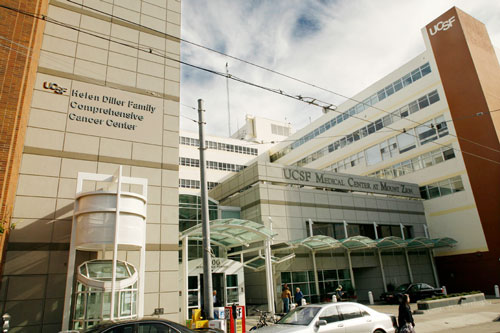Leah Hellerstein, LCSW has worked at the UCSF Helen Diller Family Comprehensive Cancer Center for about three years as an outpatient oncology social worker. She can work with any cancer patient that comes through the hospital’s doors. She will soon begin a master’s program in Public Health.

Leah Hellerstein, LCSW
Lucas: What are your responsibilities at the UCSF Cancer Center?
Leah Hellerstein: My work here at UCSF involves a lot of resource management and support services for patients coming through the UCSF Cancer Center. I cover seven different clinics. The busiest clinic is probably the breast cancer clinic, which I share with one other social worker. I also cover lung cancer, melanoma and a few other smaller clinics. The majority of my time is spent working with patients in the melanoma, breast and lung cancer centers.
Lucas: What are some of the reasons why a cancer patient would meet with you?
Leah: I would meet with a patient for a variety of reasons. Many times the referrals come through the providers here at UCSF, or I may get a call directly from a cancer patient. They may have questions about financial programs, insurance, disability, helping their family members with more care at home and overall logistics about receiving cancer treatment. That may also include lodging if the patient is coming from out of town, as we have programs that help people find a place to stay if they’ve come to us from far distances. We can also help them with transportation to and from any sort of community resource.
Lucas: Do you also act as a counselor, of sorts?
Leah: We do help patients with the more emotional, supportive side. We do a lot of counseling regarding adjustment to illness and helping people connect with work resources. However, the way that our center’s staff is set up, we do not have the capacity to do long-term therapy or counseling. A lot of our work will be initial counseling and assessments to figure out what sort of needs the patient has. From there we refer them out to different support services depending on where they live or what their needs are. We do have a psychology program here at UCSF which does work with cancer patients and their families. But we refer out for a lot of therapy services. I actually run a care-giver support group at UCSF that’s open to patients from all institutions.

UCSF Cancer Center
Credit: cancer.ucsf.edu
Lucas: At what stages during treatment will you generally meet with a cancer patient?
Leah: I can meet with people at any point in their treatment. It doesn’t have to be from the beginning. Because social work is not billed through insurance, we just kind of meet patients whenever they need us. They can call anytime, and they don’t need to set up appointments. So in that sense, we are very flexible.
Lucas: Do you interact and work with a patient’s family as well?
Leah: We will work with families in a variety of ways. Sometimes a family member will reach out to us on behalf of a patient and ask about general resources to help the patient navigate through their illness. So I will talk with a family member if the patient desires that. Sometimes a patient is just too overwhelmed to deal with everything. Sometimes it’s a combination. For instance, the patient may reach out, and then they’ll ask, “Is it OK for my daughter to reach out to you?” because they want to have multiple people involved in the process. As long as the person is listed in the chart as having a power of attorney, that is fine.
Check back next week for part two of our interview with Leah Hellerstein, in which she discusses the many stressors cancer patients face.

 What Kinds of Stressors Does A Cancer Patient Face and How Can A Social Worker Help To Ease The Burden?
What Kinds of Stressors Does A Cancer Patient Face and How Can A Social Worker Help To Ease The Burden?


 “In Case You Don’t Live Forever” by Ben Platt
“In Case You Don’t Live Forever” by Ben Platt
 Our Monthly Tip: Make an “In Case of Death” File to Ease Loved One’s Grief
Our Monthly Tip: Make an “In Case of Death” File to Ease Loved One’s Grief
 Passing of Beloved Comedian Births a New Comedy Festival
Passing of Beloved Comedian Births a New Comedy Festival














